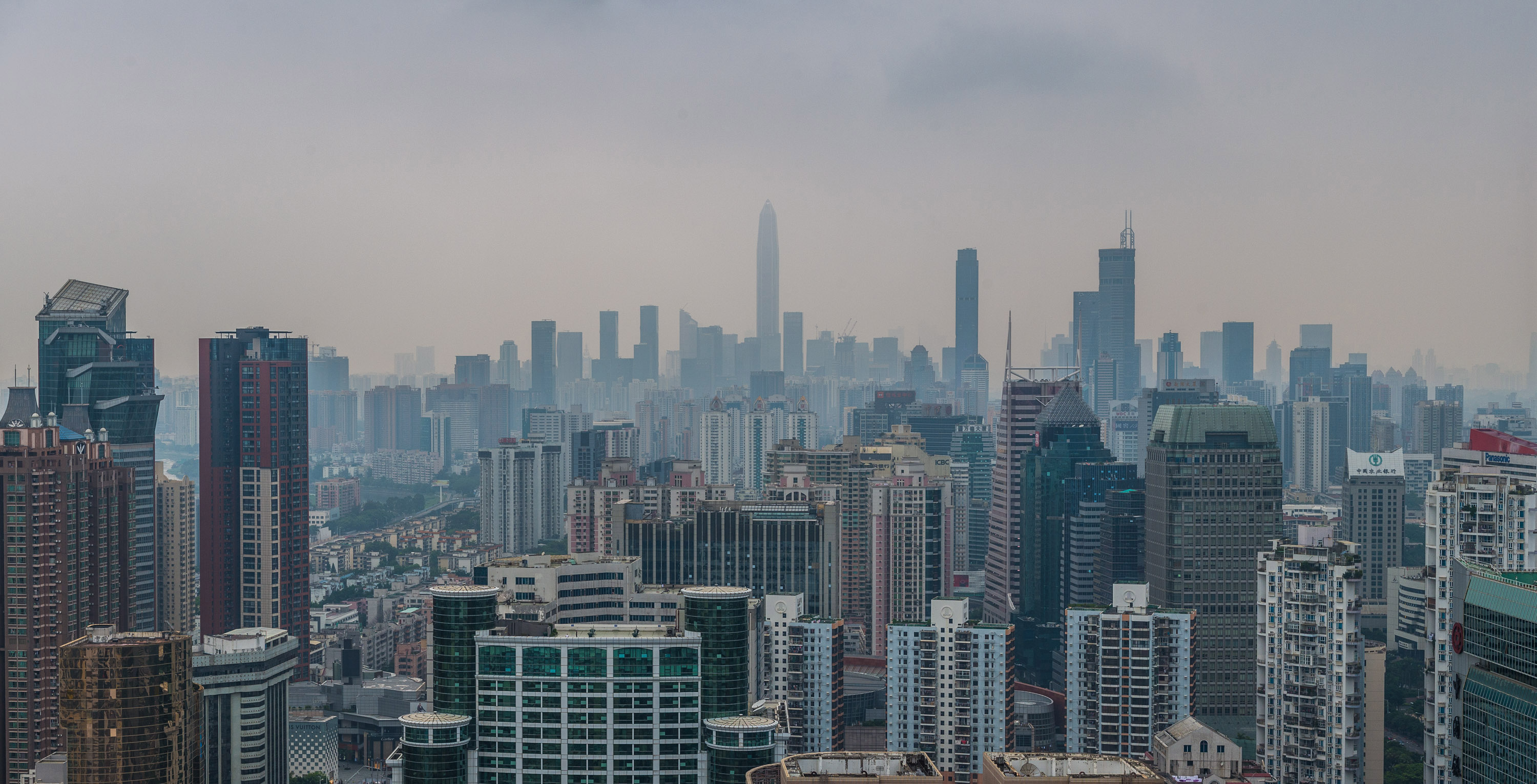
This photo taken on April 26, 2018 shows a towering skyline of Shenzhen, south China's Guangdong Province. (Xinhua/Liu Dawei)
A document issued by the Communist Party of China (CPC) Central Committee and the State Council laid out goals that include catapulting Shenzhen into the world's top echelon on innovation, public services and eco-environment, as well as serving as a paragon for the nation.
SHENZHEN, Aug. 20 (Xinhua) -- Shenzhen, once a trailblazer in China's reform and opening-up, has received a new mission to lead China's socialist path.
The southern tech hub in Guangdong Province will be built into "a pilot demonstration area of socialism with Chinese characteristics," said a document issued by the Communist Party of China (CPC) Central Committee and the State Council on Sunday.
The document laid out goals that include catapulting the city into the world's top echelon on innovation, public services and eco-environment, as well as serving as a paragon for the nation.
Experts said the new move came as a high-profile recognition of Shenzhen's development model and will inject incentives into the regional integration between Guangdong, Hong Kong and Macao.
WHY SHENZHEN?
Shenzhen is often referred to as the "window" of China's reform and opening-up drive that began in the late 1970s. In 1980, it became the country's first special economic zone with favorable policies to attract overseas investment.
Experts said China's socialist development has been a course of persistent trials and explorations. New policies are often piloted in certain cities and regions, and if proved successful, will be introduced to more places.
Qu Jian, vice dean of the China Development Institute, said Shenzhen has played a successful role as China's reform and opening-up pioneer. "Now its job is to come up with a replicable model for socialism with Chinese characteristics," Qu said.
Wu Sikang, a researcher with the Development Research Center of the Shenzhen government, said apart from its economic prowess, Shenzhen's leading positions in marketization, internationalization and the rule of law are reasons for the central government to make it a pilot zone.
Shenzhen boasts a booming private economy and houses the headquarters of many tech giants such as Huawei, Tencent and DJI. In 2018, the city's gross domestic product hit 2.42 trillion yuan (about 346 billion U.S. dollars), surpassing a number of Chinese provinces.
The city also maintains close ties with its neighbor Hong Kong, whose investment and management experience have contributed greatly to Shenzhen's economic take-off. The Shenzhen-Hong Kong cooperation, put in the context of the Guangdong-Hong Kong-Macao Greater Bay Area, is set to figure prominently in its pilot zone plan, analysts said.
LONG ROAD TOWARD COSMOPOLIS
According to the blueprint set by the document, by 2025, Shenzhen will rank among the top cities in the world in economic strength and quality of development. By 2035, it will become a hub of innovation, entrepreneurship and creativity with international influence.
By the mid-21st century, the city will become one of the top cosmopolises in the world and a global pacesetter with outstanding competitiveness, innovative capacity and influence, said the document.
Guo Wanda, executive vice dean of the China Development Institute, said Shenzhen has worked hard to improve its public services, legal and natural environment in recent years.
However, a long struggle still lies ahead for Shenzhen's pursuit of cosmopolis status, which is characterized by a high significance to global politics and the world economy and the convergence of global talent, funds and information, said Guo.
"As a young city, Shenzhen is still weak in education, medical care and other livelihood undertakings. That is why it is now investing heavily in new hospitals and schools and soliciting global talent in these fields," Guo said.



